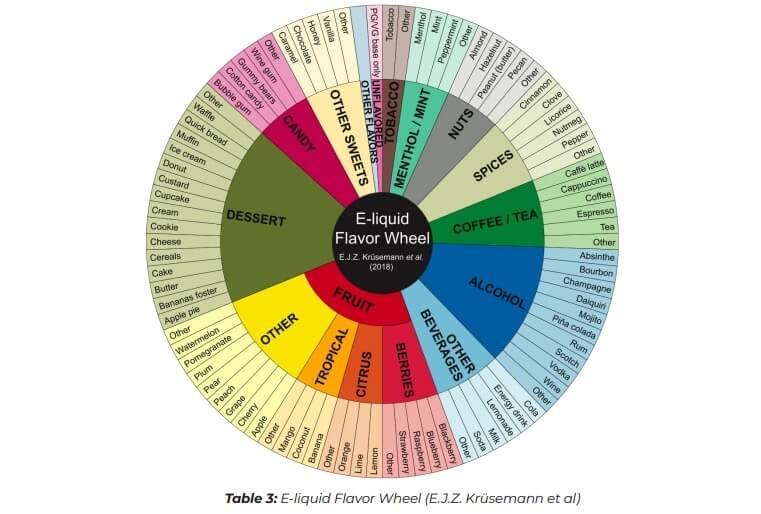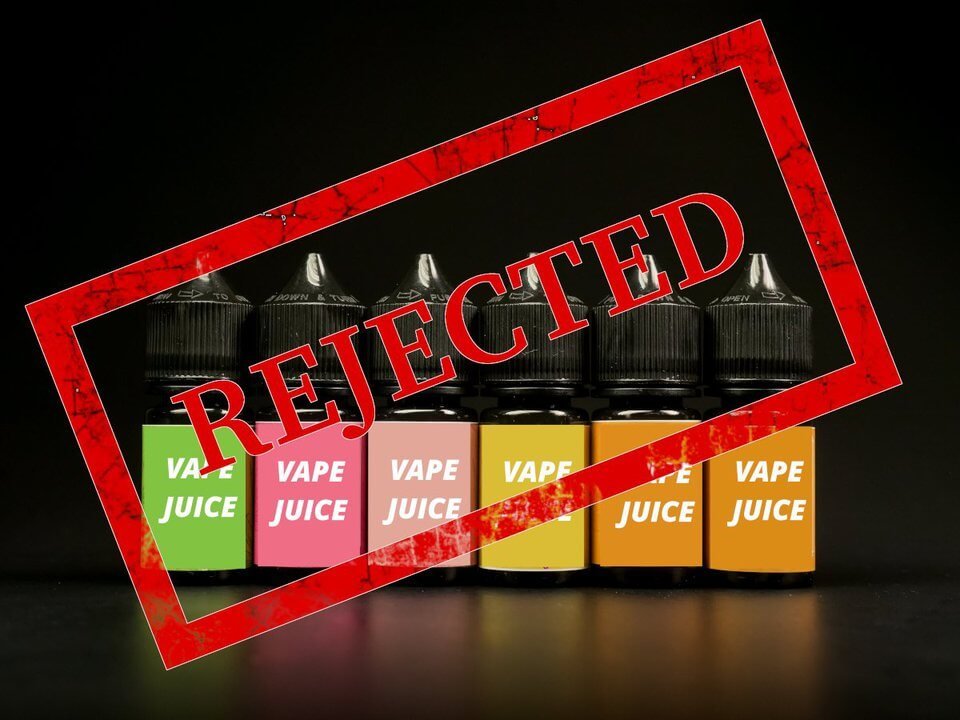The 2009 U.S. federal Smoking Prevention and Tobacco Control Act banned fruit and candy flavors in combustible cigarettes but did not restrict their use in products such as e-cigarettes. So in 2020, House Bill 2457 was introduced to include e-cigarettes in the flavor ban.
The original intent of the vape flavor ban was to prevent minors and teens from becoming nicotine dependent and turning to smoke through e-cigarettes because they were attracted to the flavors. It is one of the main reasons all countries and regions have implemented tobacco and flavor bans.
Can flavor bans prevent youth from using tobacco and e-cigarettes? How effective would a flavor ban be?
The Massachusetts Department of Revenue’s Illicit Tobacco Task Force gave definitive testimony at a hearing in 2020 on data about how e-cigarette users respond to such bans. Flavoring bans have no natural effect and only lead to a “significant increase in smuggling and black market sales.”
Charles Giblin, an investigator with the state Department of Treasury’s Office of Investigations and now retired. He argued in a media interview that “Flavor bans only add unnecessary burdens to law enforcement. By strictly enforcing flavor bans, it has created a large new black market that includes cross-country, cross-state, and cross-border smuggling of tobacco, e-cigarettes, and e-cigarettes related counterfeit products into circulation. Our investigation found that before the flavor ban, there was an increase in the smuggling and illegal importation of counterfeit flavored cigarettes from countries such as China and Paraguay via the Internet between Massachusetts and New Hampshire. But after implementing the flavor ban, this activity spiked almost instantly and at an incredible rate overnight. The fact is, however, that to this day, these illegal activities are growing.”
In a recent article, Guy Bentley analyzed the causes of this phenomenon, arguing that since June 2020, Massachusetts has implemented a ban on flavored e-cigarettes and tobacco products, only to create a disastrous consequence. Lawmakers wanted people to stop smoking and vaping e-cigarettes, but against their wishes, people have not changed their habits and are finding preferred flavors through other channels. In Massachusetts alone, sales of regular cigarettes, which are just as deadly as flavored cigarettes like menthol, soared by 15.6 million packs a year, indicating that instead of having the desired effect, the flavor ban will lead to more tobacco consumption.
Flavor bans have significantly impacted Massachusetts’ tax revenues because since they can’t get their favorite flavors in the state, consumers will continue to look for their favorite products in other places that don’t have bans. Cigarette sales data from neighboring states already show this trend: in New Hampshire, sales of flavored cigarettes soared by 22%, and in Rhode Island, by 18%. According to the Tax Foundation, Massachusetts lost $125 million in tax revenue in the fiscal year 2021 due to the flavoring ban.

And to the growing number of questions and objections, lawmakers have had to revisit the flavor ban. After all, it does not achieve the established effect and promotes illegal trade in the black market. Such a ban that hurts the enemy for 0, self-loss eight thousand, will only make the wrongdoers gain, and consumer protection is also reduced to empty talk.
Connecticut, the United States of America Vape flavor ban, on three votes in support of the vote ultimately failed to pass. 2020 Governor Ned Lamont (Ned Lamont) proposed a measure as part of the budget but failed. And in 2021, a bill to ban the sale of flavored cigarettes, tobacco products, and e-cigarettes was introduced and shelved. In 2022, the flavors ban was reintroduced, with changes brokered by the Department of Finance, Revenue, and Bonding to work the flavors ban around and avoid defeat of the ban together.
This year’s version only addresses the sale of flavored e-cigarettes. The department has proposed an “optimized version” of the flavor ban, which would designate specific channels to prohibit the sale of flavored products. In contrast, other media would not be affected by the ban. Under the new proposal, gas stations, convenience stores, package stores, supermarkets, and other prohibited retailers would not be allowed to sell flavored products. The sale of flavored products would be limited to registered “adult tobacco” stores and only be allowed to persons 21 years of age and older.
Conclusions:
Although several countries and regions have demonstrated by example that flavor bans do not work and only create a black market, many countries and areas are still committed to “flavor bans”. But the fact and the trend, perhaps the flavor ban, is the opposite of the regulatory measures and will eventually be eliminated.
References: “Hawaii’s Flavour Ban is Passed,” “Connecticut: A Bill Banning Vape Flavours Fails to Pass For The Third Time.”


